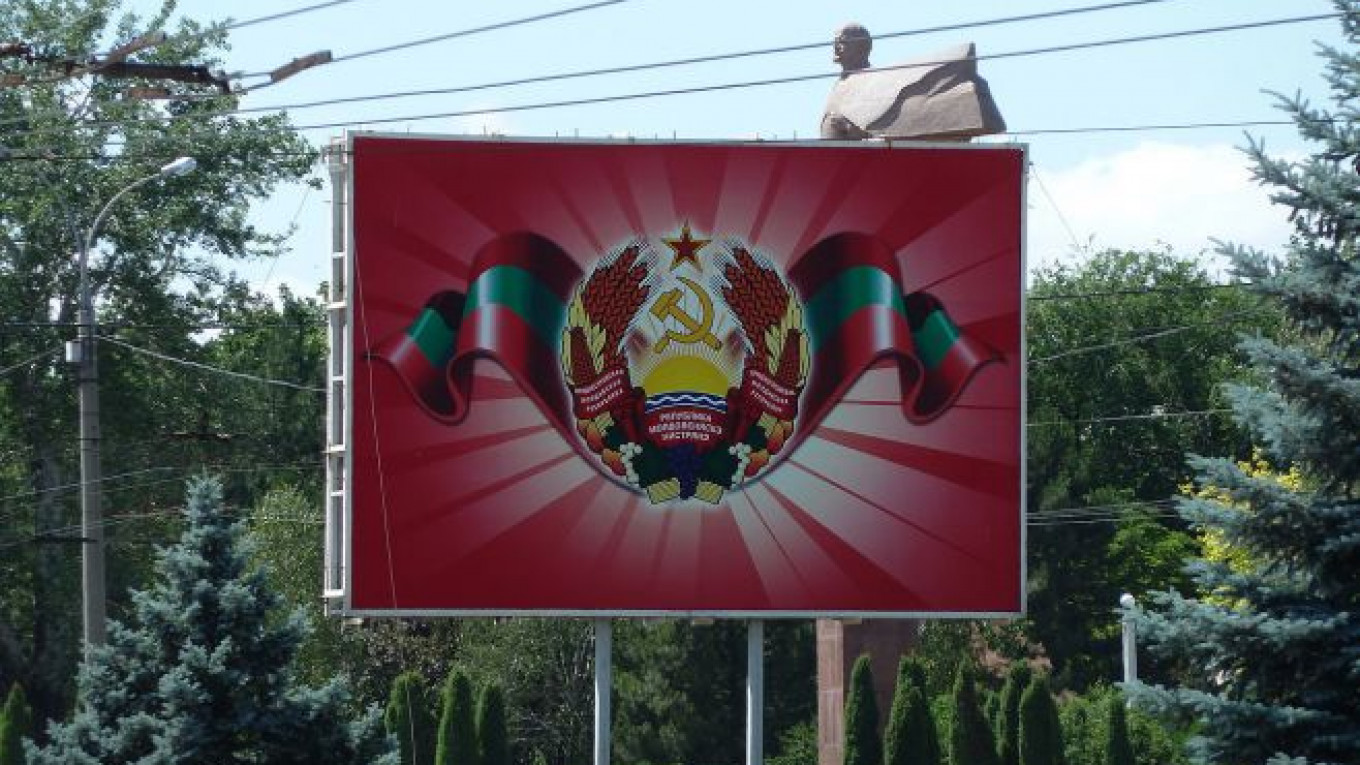The West should help defuse a potentially explosive situation over Russia's military access to the self-proclaimed republic of Transdnestr which is shaping up as another Russia-Ukraine flash point.
On May 21, the Ukrainian parliament voted to suspend all military cooperation with Russia, effectively terminating the 1995 agreement giving Russia military transit rights across Ukraine to its forces in Transdnestr. Simultaneously, Moldova tightened the rules of transit for Russian military personnel traveling via Chisinau airport.
This blocks the regular rotation of the Russian 1,300-men-strong Operational Group of Forces in Transdnestr while the Ukrainian move blocks its resupply and rearmament.
Given Russia's shenanigans in Crimea and the Donbass, Ukraine's decision is understandable, but it may also give Moscow a legitimate "casus belli" for going all the way in militarily in a larger scale remake of the 2008 war with Georgia.
A senior Russian Defense Ministry official stated after the Ukrainian vote that Russia would resupply its base under any circumstances, even through an air bridge. This may not be to Chisinau, the Moldovan capital, but to a recently restored airfield in Tiraspol. That would put Ukraine in a difficult position — whether it should allow Russian military flights over its territory to bring "little green men" within 100 kilometers of Odessa.
A move to deny flights or intercept Russian military planes over Ukraine could give Moscow the grounds for full-scale military retaliation. Duma Deputy Sergei Zheleznyak stated that an attack on Russian forces in Transdnestr would most certainly mean war with Ukraine and a "Russian march on Kiev."
This could only come in the Donbass and perhaps in Kharkiv where Russia has border control. The small Russian force in Transdnestr is unfit for offensive operations, while an amphibious assault on Odessa from Crimea is beyond the current capabilities of the Russian military. The objective would then be to broaden the area under separatist control, perhaps followed by their recognition as sovereign states, giving Russia a larger buffer zone with a Western-allied Ukraine.
The way to forestall this is for the West to work with Moldova to allow the resupply of Russian forces in Transdnestr through Chisinau airport under OSCE monitoring to ensure the force levels do not increase. But one has to move fast.
Vladimir Frolov is president of LEFF Group, a government relations and PR company.
A Message from The Moscow Times:
Dear readers,
We are facing unprecedented challenges. Russia's Prosecutor General's Office has designated The Moscow Times as an "undesirable" organization, criminalizing our work and putting our staff at risk of prosecution. This follows our earlier unjust labeling as a "foreign agent."
These actions are direct attempts to silence independent journalism in Russia. The authorities claim our work "discredits the decisions of the Russian leadership." We see things differently: we strive to provide accurate, unbiased reporting on Russia.
We, the journalists of The Moscow Times, refuse to be silenced. But to continue our work, we need your help.
Your support, no matter how small, makes a world of difference. If you can, please support us monthly starting from just $2. It's quick to set up, and every contribution makes a significant impact.
By supporting The Moscow Times, you're defending open, independent journalism in the face of repression. Thank you for standing with us.
Remind me later.


